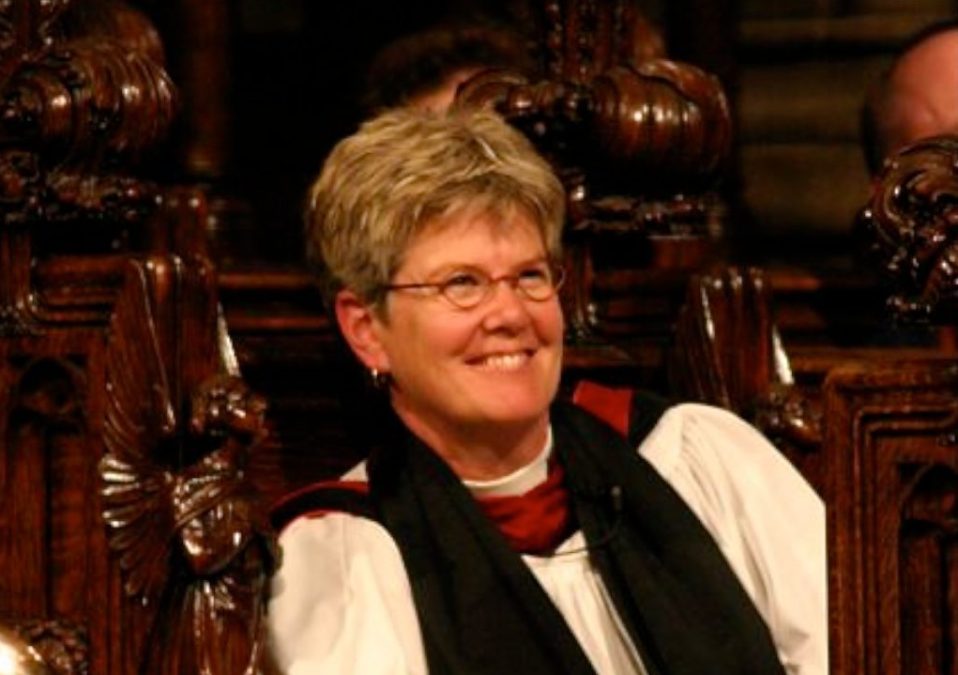By Tracey Lind
“In the middle of the journey of my life, I came to myself, in a dark wood, wherein the direct way was lost.” These opening words from Dante’s Divine Comedy best describe what happened to me at age of 62. On Election Day 2016, I was diagnosed with Frontotemporal dementia (FTD), an early onset dementia. For months, I had tried to ignore the increasingly obvious signs and symptoms.
However, one day, I looked in a mirror and didn’t recognize my own face. Following a season of grief, relief, and escape, I decided to reframe this interruption in my life, and transform it from an intrusion into an invitation, from a death sentence into a pilgrimage. Over the past year and a half, I’ve been getting to know and learning to love the person I saw in that mirror, the one whose face I didn’t recognize.
I have watched many people hide dementia as if it is something to be ashamed of or embarrassed about, an incurable disease spoken of in hushed voices. I don’t want to live with dementia on those terms. I believe that denial isn’t useful; honesty is important; early diagnosis can result in a higher quality of life, and transparency makes life easier for everybody involved.
An early diagnosis allowed me to exit work gracefully, put our legal and financial affairs in order, and make plans for the future, trying to imagine how I might experience the fullness of life as my dementia progresses. It also has given me the opportunity to do what I love and spend time with those whom I love. Honesty has afforded me the time, space, incentive, and willpower to be intentional about self-care, exploring ways to manage my disease. As a pastor and theologian, being transparent have encouraged me to make sense of dementia: to consider its spirituality, to give it meaning and purpose, and to share my learnings with others.
Many days, I feel like a stranger in a strange land. As I walk this wilderness path, I’m trying to follow the advice of the poet Rumi who wrote: “Be the soul of the place you’re standing.”
I am determined to live fully with dementia as a companion on this chapter of my life’s pilgrimage.
So what gives me hope? As a person of faith, I believe in “the assurance of things hoped for and the conviction of things not seen.” Thus, I hope that with the companionship, support and encouragement from my spouse, my doctors, my friends and family, I can craft and experience a rich and full life with dementia – all the way to the end. I hope for the discovery of ways to prevent, slow, and reverse dementia, and for the funding required for aggressive research, integrative treatment, and compassionate care.
As baby boomers age and more people struggle with dementia, I hope that communities will become dementia-friendly places. I also hope that society will recognize the right of individuals with dementia to live and die with comfort and dignity.
One of the challenges for people living with dementia is that we lose the ability tell our own stories and advocate of our own behalf. That is why, for as long as I am able, I’m determined to preach, teach, and tell my story of dementia from the inside out, in hopes that others will do the same and bring this growing public health crisis out of the shadows and into the light.
For at the end of “Inferno,” Dante writes: “We climbed…until through a small round opening ahead of us, I saw the lovely things the heavens hold, and we came out to see once more the stars.”
The Very Rev. Tracey Lind is a newly retired Episcopal priest and city planner whose ministry has included work for social and environmental justice, interfaith relations, sustainable urban development, arts and culture, and progressive theology. Learn more about Tracey Lind.
You need to login in order to like this post: click here

